Environmental Value Systems

Welcome to my survey! The following survey will ask you questions regarding your views on specific environmental/social issues. Once completed, the survey will assess your answers and assign you one of the three environmental value systems; Ecocentric, Anthropocentric, or Technocentric (Explanations for your assigned EVS will be provided once completed). These first questions are just personal background questions and will not affect your result.
Welcome to my survey! The following survey will ask you questions regarding your views on specific environmental/social issues. Once completed, the survey will assess your answers and assign you one of the three environmental value systems; Ecocentric, Anthropocentric, or Technocentric (Explanations for your assigned EVS will be provided once completed). These first questions are just personal background questions and will not affect your result.
How old are you? (Select the group that applies)
Under 18
18-24
25-34
35-44
45-54
55-64
65+
What is your race/ethnicity (Select all that apply)
White or Caucasian
Black or African American
Hispanic or Latino
Asian or Asian American
American Indian or Alaska Native
Native Hawaiian or other Pacific Islander
Other
What is your level of education? (Select the highest that applies)
Primary (primary school)
Secondary (high school)
Tertiary (Bachelor’s degree or equivalent)
Postgraduate (Masters, PhD)
Other
Now that the personal background section is complete, the survey will ask about some social/environmental topics. To ensure the best and most accurate data possible, please read and evaluate each question thoroughly, selecting the answer you support the most. Results are 100% private, so please answer each question honestly.
FAST FASHION
The following question will ask your opinions on fast fashion. Fast fashion is any major fashion corporation that produces inexpensive clothes at a rapid speed to meet consumer trends and demands. (some examples of fast fashion corporations are GAP, Primark, H&M, SHEIN, etc.)
Now that the personal background section is complete, the survey will ask about some social/environmental topics. To ensure the best and most accurate data possible, please read and evaluate each question thoroughly, selecting the answer you support the most. Results are 100% private, so please answer each question honestly.
FAST FASHION
The following question will ask your opinions on fast fashion. Fast fashion is any major fashion corporation that produces inexpensive clothes at a rapid speed to meet consumer trends and demands. (some examples of fast fashion corporations are GAP, Primark, H&M, SHEIN, etc.)

Which of the following statements best reflects your opinion on the impact that fast fashion has had on the fashion industry?
Fast fashion has become a staple to the fashion industry, providing good quality clothing options to many people for low prices.
Fast fashion has had a positive impact on the fashion industry, inspiring innovation among competitors to create more efficient technology that can pander to the needs of the consumer.
Fast fashion has had a negative impact on the fashion industry, leading to overconsumption and excessive waste within its consumers
I am not sure about the impact of fast fashion on the environment and society.

Which of the following statements best describes the make up of your closet?
I enjoy shopping second-hand. Most of my closet comes from thrift stores, or are hand-me-downs from friends or family. Even when I purchase something new, I make sure it was sustainably manufactured (ie; recycled materials).
I enjoy shopping at big-box retailers like Walmart, Target, Lululemon, Old Navy, etc. I enjoy the low prices while having a wide variety of options. Keeping up with the latest trends and styles is of some importance to me and I enjoy the feeling of buying something "brand new".
I enjoy wearing only the finest clothes of foreign designers. I occasionally shop at other places, but if given the option I would purchase authentic European leather or fur coats. Appearing high-status is of some importance to me and I enjoy knowing that what I am wearing is authentic.
I enjoy purchasing my clothes online. I shop on the websites of big-box retailers if they have good deals, but websites like Romwe, SHEIN, and amazon are my go-to's when it comes to getting clothes quickly, easily, and at a low price. I slightly dislike the hassle of in-person shopping and enjoy the convenience of having something delivered to my door.
I dont know where I get my clothes from.
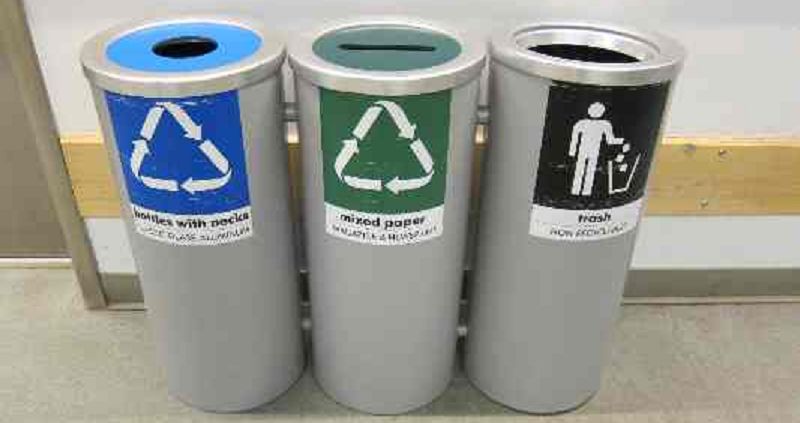
How often do you recycle?
All of the time
Most of the time
Half of the time
Occasionally
Never

How likely would you be to purchase an eco-friendly product over a regular product, even if it were more expensive.
Very Likely
Likely
Neither likely nor unlikely
Unlikely
Very Unlikely

What are your thoughts on electric cars?
Electric cars are a positive step forward for reducing carbon emissions and promoting sustainable transportation.
Electric cars are a positive step towards noise pollution reduction and promoting energy independence.
Electric cars have some benefits, such as reduced noise pollution and lower fuel costs, but they also have some drawbacks, such as the need for charging infrastructure on top of many other things.
Electric cars are the future of transportation and will eventually replace gasoline-powered cars as technology advances and costs decrease.
I do not know much about electric cars

What should the U.S. Government focus on when improving public transportation systems?
The U.S. Government should focus on the commuters when redesigning public transportation systems. Accessibility, quality, and reliability are very important for a prospering public transit system. An increase in public transportation infrastructure will lead to less road congestion, helping commuters reach their destinations more quickly.
The U.S. Government should focus on new technologies. Both mechanized technologies like metro trains or ferries and active transportation like bike lanes/pedestrian-oriented advancements will allow more people to access public transport.
The U.S. Government should focus on new alternative fuel technologies to power public transportation, such as electric or hydrogen-powered buses and trains. Spending more on eco-friendly public transportation will decrease road traffic and carbon emissions in the process.

Which statement best describes your views on the impacts of walkable cities?
Walkable cities are a way to reconnect people with nature and promote a more sustainable relationship with the natural world.
Walkable cities provide convenient access to amenities and services, which improves the quality of life for humans.
Walkable cities can be designed with advanced data and technology, which will lead to lower crime rates, higher civic engagement, and just an overall more positive way of life for those who live there.
Walkable cities are overrated and unrealistic, and focusing too much on them could distract from more important environmental issues.

How important do you believe it is for humans to maintain their dominant position as the most advanced species on the planet?
Maintaining human dominance is not necessary and only leads to the exploitation and destruction of the natural world.
Maintaining human dominance is necessary to ensure the continued progress and development of human society.
"Maintaining" human dominance is not really necessary as no other species will ever come close to the technological level that mankind has achieved.
Human dominance is a false construct that undermines the interconnectedness of all living beings and threatens the survival of the planet.

Should humans be considered as the most important or valuable species on the planet?
Yes
No

How often do you find yourself worrying about the future of the environment?
I worry often about the future of the environment and the negative effects it could have on ecosystems. It is a concern that I think about regularly.
I worry often about the future of the environment and the negative effects it could have on technological advancements. It is something that I think about regularly.
I worry often about the future of the environment and the negative effects it could have on human life. It is a concern that I think about frequently.
I worry occasionally about the future of the environment, but it is not something that consumes my thoughts.
I rarely worry about the future of the environment. It is not a major concern for me.

Do you believe that developed countries have a responsibility to intervene in the actions of lesser developed countries for the benefit of the environment?
Yes, developed nations have the technology and economies capable of reversing some of the environmental damage caused by lesser developed countries. Providing better technology to these poor nations could potentially provide a higher quality of life for those who live there.
No, the involvement of developed nations often leads to a government reliance on that nation as well as unrest among the citizens. The best way for a country to achieve environmental sustainability is through economic independence.
Yes, involvement of developed nations leads to a boost in diplomatic relations as well as a greener planet. Providing nations with infrastructure for healthcare, education, security, and eco-friendly farming/production techniques will lead to environmental sustainability much faster.
No, before funding the environmental progress of foreign nations, these developed countries should focus on their own environmental issues. The "developed world" produces much higher levels of carbon emissions compared to the lesser developed countries.

Should sustainability and conservation be prioritized over economic growth?
Yes, sustainability and conservation should always be prioritized over economic growth because the long-term survival of our planet and its ecosystems is more important than short-term economic gains.
No, economic growth is necessary to improve the standard of living for people and reduce poverty, and it can be achieved in a sustainable way through green technologies and innovation.

How can the depletion of resources and unequal wealth distribution caused by global population growth be reversed?
Implementing sustainable practices to reduce resource consumption/waste and encouraging alternative forms of transportation/agriculture to reduce the consumption and emissions of fossil fuels.
Promoting international cooperation and aid to reduce poverty and implementing policies redistributing wealth and resources fairly.
Increasing investment in sustainable agriculture practices and scientific research to develop new technologies for resource management to reduce the waste of food.
Which of the following natural resources do you think will be the most important in the year 2050?
0%
0
0%
0
0%
0
0%
0
0%
0
0%
0
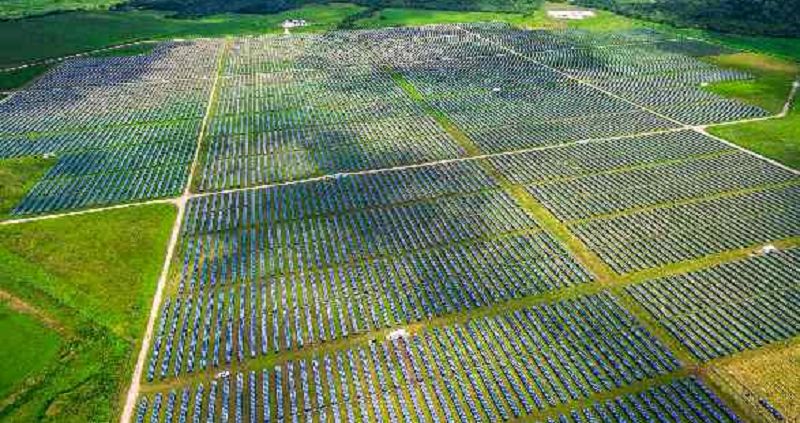
Do you think that technological solutions, such as renewable energy are the key to addressing climate change on a global scale?
Yes, we need to invest in advanced technologies to reduce carbon emissions and transition to a more sustainable energy system.
Somewhat. While technological solutions are important, we also need to make significant changes to our lifestyles and societal structures to truly address climate change.
No, technological solutions are not enough. We also need to both identify and address the root causes of climate change, such as overconsumption and unsustainable economic growth.
It is more important to evaluate the costs of these technologies. We need to carefully evaluate the benefits and trade-offs of implementing them before making any decisions.

Should we consider the well-being of future generations of humans when making decisions that affect the environment and other species on Earth?
Yes
No

What should humans do to protect themselves from issues relating to climate change?
Promote behavior change through education and incentives, such as offering tax credits for energy-efficient home upgrades or offering discounts on public transportation.
Engage in international cooperation to coordinate global efforts to reduce emissions and address the impacts of climate change, such as participating in the Paris Agreement or other international agreements.
Increase investment in research and development of low-carbon technologies
Develop and enforce regulations on fossil fuel production and use.
The following questions will be about the following text. Again, you won't need to memorize anything, but it is crucial that you read through the passage to form a better understanding of oil drilling in the Arctic.
Oil Drilling in The Arctic:
Since the late 1950s, many major oil corporations began expeditions in the northern slope region. Nothing would be found until 1962 when Russia discovered a large oil and gas field in Tazovskoye, six years later, a significant oil discovery was made by The United States of America in Prudhoe Bay, Alaska. Since those two discoveries, both Russian and American oil economies have BOOMED! Creating hundreds of thousands of jobs in the process. Many Alaskans, even today, rely on the oil industry to survive. However, since 2013, major corporations have been suspending their oil drilling operations in the Arctic, deeming them "too risky and expensive." Companies like Texas-based ConocoPhillips (2013), Royal Dutch Shell (2015), and British Petroleum (2015) have all suspended their Arctic drilling expeditions. The U.S. Government even stopped selling and renewing any new leases in 2016. Even abroad in Norway, oil companies struggle to start production.
Why?:
Since the discovery of oil reserves in the Arctic, many oil companies have run their ships aground, leading to catastrophic oil spills which harm local ecosystems and pose great danger to the untouched land that many Indigenous Tribes reside on. However, with the advancement of technology, many of the big oil corps that want to drill in the Arctic are pledging not to harm the local wildlife or the nearby lands.
Long-term effects:
Oil drilling in the Arctic would create hundreds of thousands of jobs, potentially leading to an economic boom within the nation involved. However, there is still a possible threat to the local people and animals that call the Arctic their home.
The following questions will be about the following text. Again, you won't need to memorize anything, but it is crucial that you read through the passage to form a better understanding of oil drilling in the Arctic.
Oil Drilling in The Arctic:
Since the late 1950s, many major oil corporations began expeditions in the northern slope region. Nothing would be found until 1962 when Russia discovered a large oil and gas field in Tazovskoye, six years later, a significant oil discovery was made by The United States of America in Prudhoe Bay, Alaska. Since those two discoveries, both Russian and American oil economies have BOOMED! Creating hundreds of thousands of jobs in the process. Many Alaskans, even today, rely on the oil industry to survive. However, since 2013, major corporations have been suspending their oil drilling operations in the Arctic, deeming them "too risky and expensive." Companies like Texas-based ConocoPhillips (2013), Royal Dutch Shell (2015), and British Petroleum (2015) have all suspended their Arctic drilling expeditions. The U.S. Government even stopped selling and renewing any new leases in 2016. Even abroad in Norway, oil companies struggle to start production.
Why?:
Since the discovery of oil reserves in the Arctic, many oil companies have run their ships aground, leading to catastrophic oil spills which harm local ecosystems and pose great danger to the untouched land that many Indigenous Tribes reside on. However, with the advancement of technology, many of the big oil corps that want to drill in the Arctic are pledging not to harm the local wildlife or the nearby lands.
Long-term effects:
Oil drilling in the Arctic would create hundreds of thousands of jobs, potentially leading to an economic boom within the nation involved. However, there is still a possible threat to the local people and animals that call the Arctic their home.
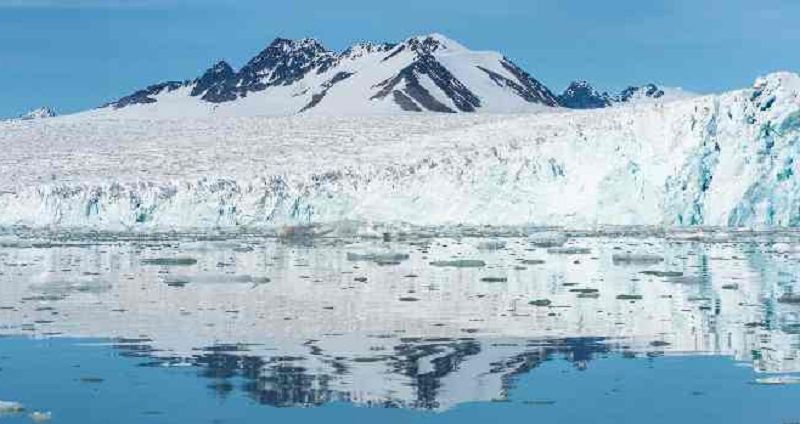
Should the government of The United States continue to lease out lands to major oil corporations in The Arctic for drilling expeditions?
Yes
No

Which of the following statements best describes your reasoning for the previous question?
The U.S. Government will create a large sum of revenue from leasing out large areas of federal land to these oil companies. The revenue generated could go towards government programs that will directly benefit the citizens.
Drilling expeditions in the Arctic have the potential to create jobs for the people in those communites. Creating economic growth in the process.
As of 2023, The United States relies very heavily on oil imports from foreign countries. Granting permission to these large oil corporations will increase domestic production, reducing dependence on foreign oil and increasing energy security.
The technology required to drill oil has greatly enhanced, allowing oil extraction from areas previously deemed inaccessible. Allowing these corporations to drill in the Arctic will lead to further advancement in the extraction technology, as well as safer ways to extract oil in the future.
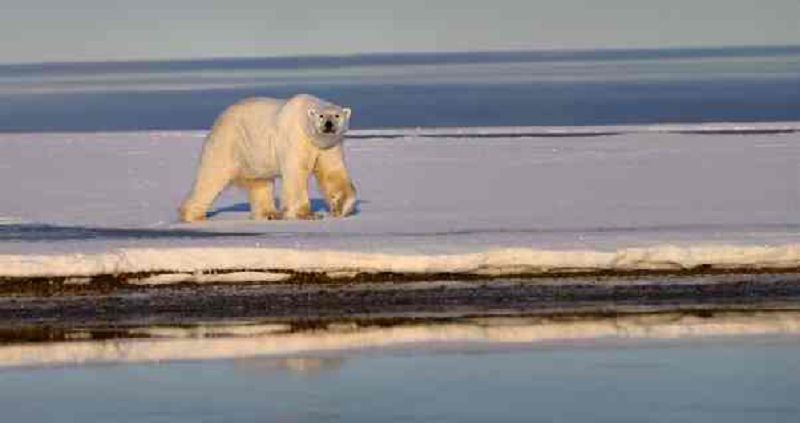
Which of the following statements best describes your reasoning for the previous question?
Drilling for oil in the Arctic can have severe environmental consequences, including oil spills, habitat destruction, and disruption of wildlife populations.
Burning fossil fuels contributes to climate change, which has significant implications for the planet. Allowing drilling in the Arctic can worsen the issue and undermine efforts to reduce greenhouse gas emissions.
The United States government can promote economic diversification by investing in renewable energy sources rather than relying on oil and gas extraction.
The Arctic is home to many indigenous communities whose way of life is threatened by oil exploration and extraction. The government should consider the rights and interests of these communities when making decisions about drilling in the Arctic
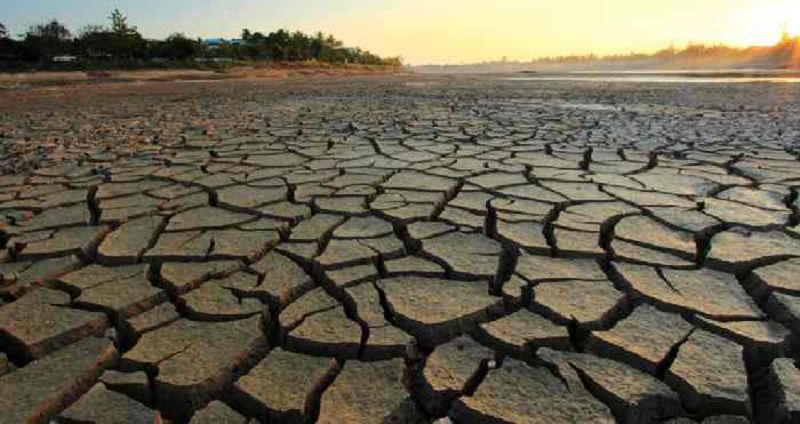
Do you think that enough is being done to address the issue of drought on a global scale? What else can be done to resolve some of the drought-related issues being experienced all over the world?
Yes, governments and organizations are doing enough to address drought-related issues.
No, but we should focus on developing better technologies to overcome drought.
No, we need to prioritize the protection and restoration of ecosystems to address drought-related issues.
No, we need to encourage people to reduce their water consumption to address drought-related issues.

Which of the following statements best describes your opinion on GMOs (Genetically Modified Organisms) in food?
GMOs can be very harmful to the environment. Since they can be engineered to obtain greater resistance to pests and diseases, more pesticides are used which can harm beneficial plants and animals. The genetically modified crops can reduce biodiversity if they cross-breed with non GMO crops, leading to vulnerability to diseases.
GMOs are a very beneficial technology. The larger crop yields lead to a greater crop revenue as well as increase the amount of food available. GMOs have the potential to combat issues relating to food insecurity.
GMOs have great benefit to humans. Food can be genetically modified to have more vitamins and nutrients, and since they can be produced in greater amounts, this increases the amount of healthy food being produced. Genetic engineering can be also used to create new kinds of medicines so it is very important that we continue to invest in this industry.

How should the agriculture industry go about promoting new sustainable technologies?
Implement policies and regulations that incentivize sustainable practices and penalize environmentally harmful practices, such as reducing subsidies for industrial-scale agriculture and increasing funding for conservation programs.
Develop and promote new technologies, such as precision agriculture and vertical farming, to increase efficiency and reduce resource use in food production.
Support organic and regenerative farming practices that prioritize soil health and biodiversity, and reduce the use of synthetic fertilizers and pesticides
I don't know enough about sustainable farming practices.

Do you believe that further advancement of technology has the ability to solve most of the problems faced by the environment today?
Yes
No
{"name":"Environmental Value Systems", "url":"https://www.supersurvey.com/QPREVIEW","txt":"Welcome to my survey! The following survey will ask you questions regarding your views on specific environmental\/social issues. Once completed, the survey will assess your answers and assign you one of the three environmental value systems; Ecocentric, Anthropocentric, or Technocentric (Explanations for your assigned EVS will be provided once completed). These first questions are just personal background questions and will not affect your result., What is your name? (First\/Last ie; John Smith), How old are you? (Select the group that applies)","img":"https://cdn.poll-maker.com/87-4203750/5910e5071e00003a00621e9f.jpg?sz=1200-00094000000990605300"}